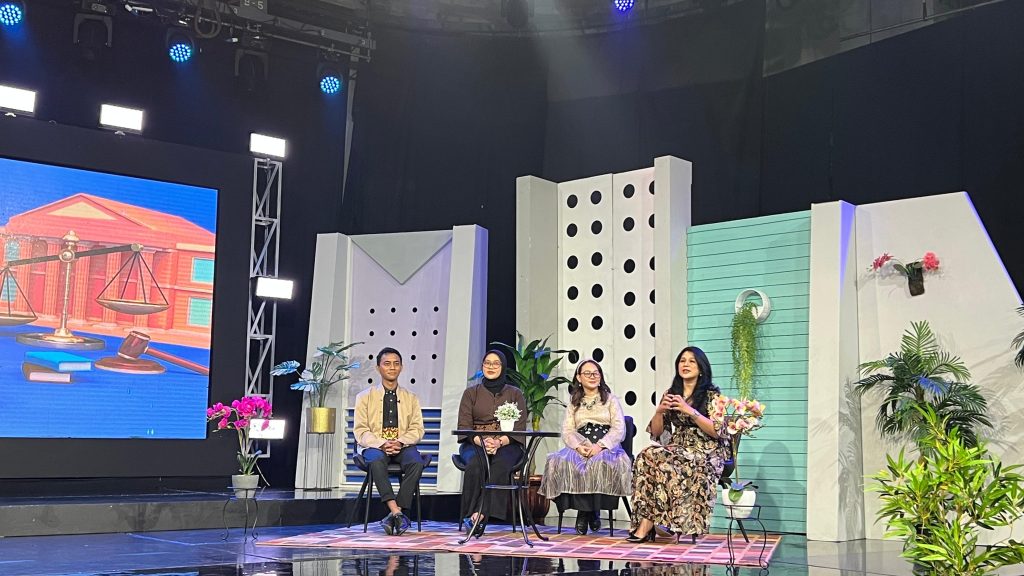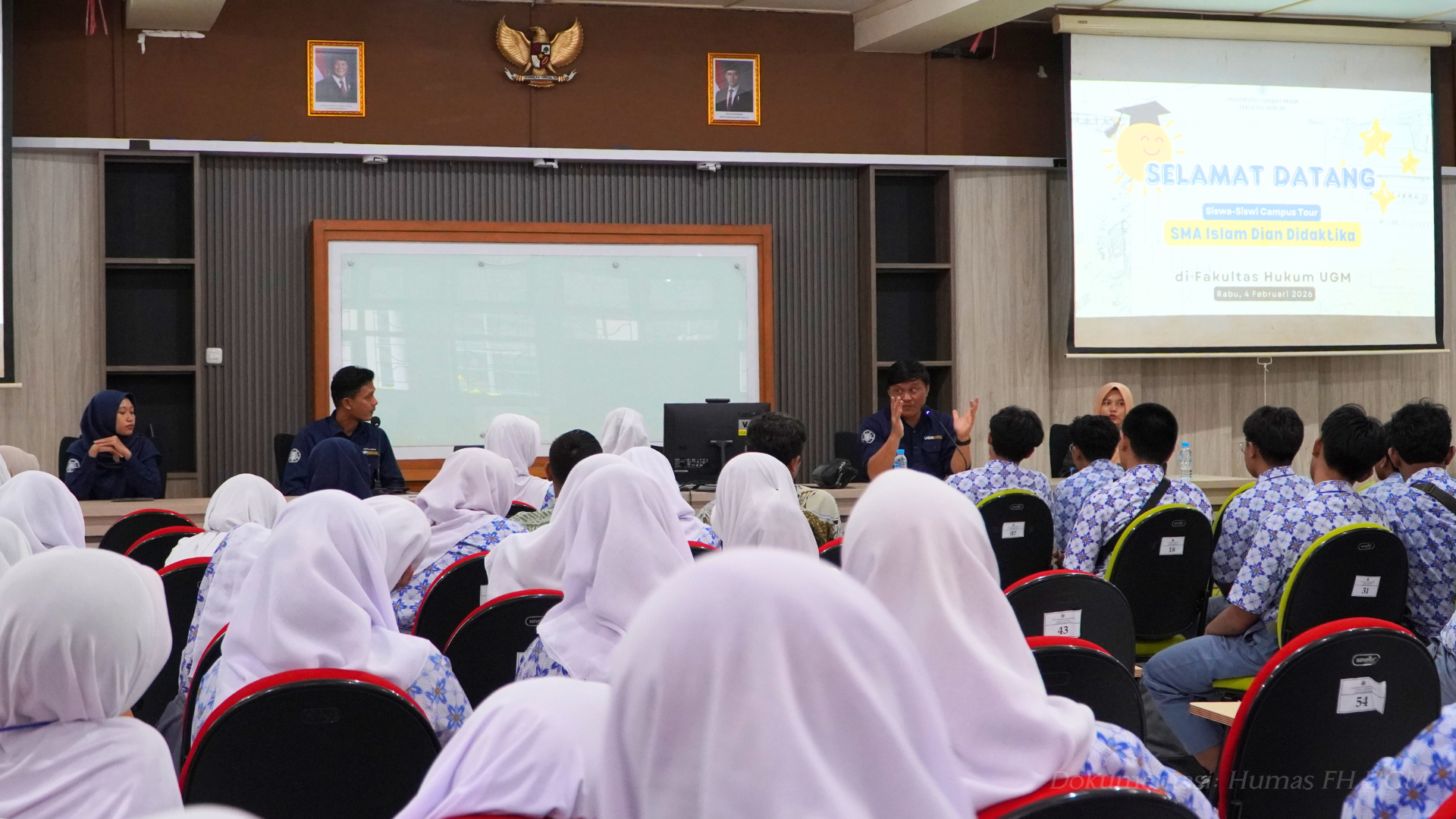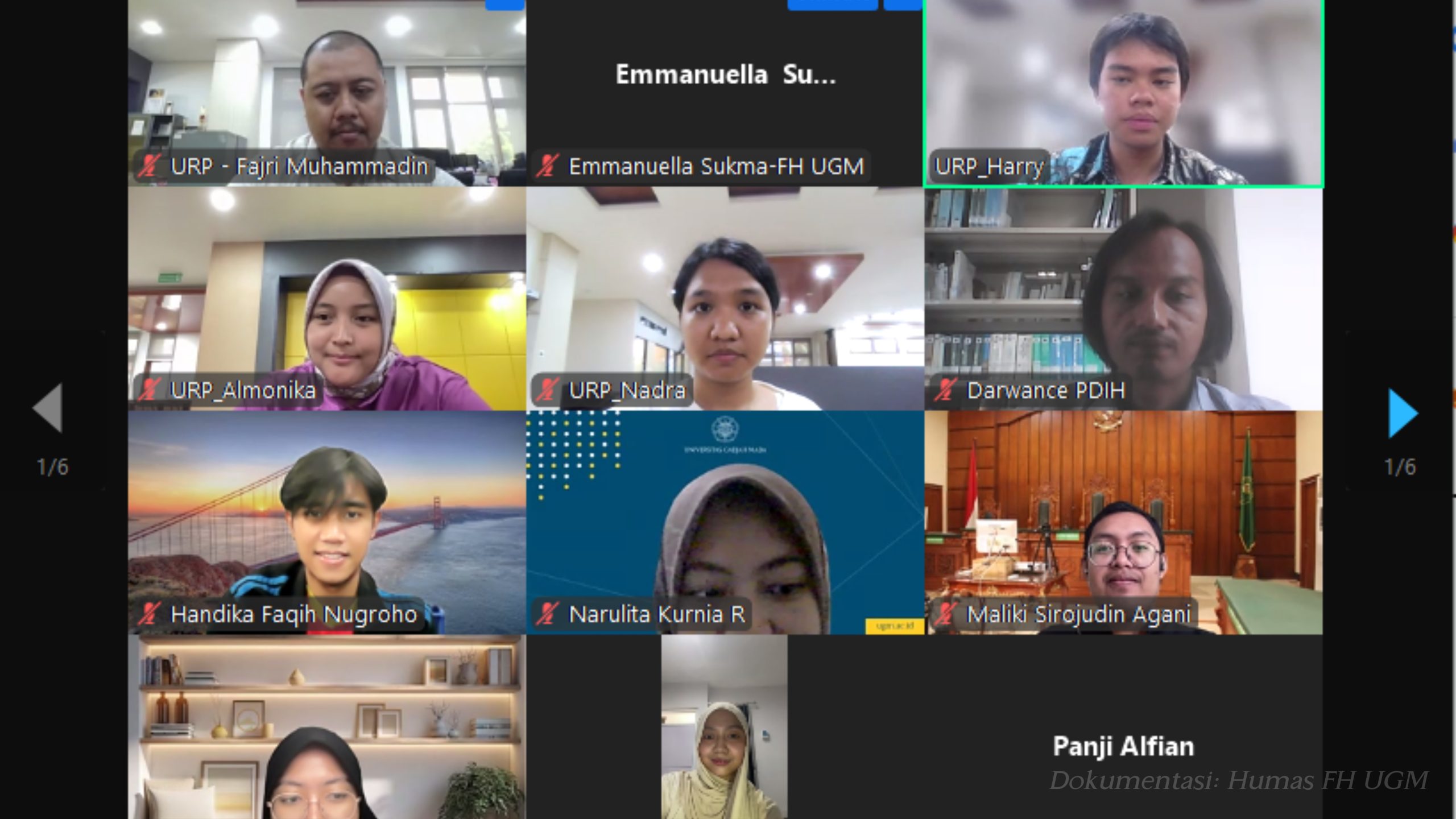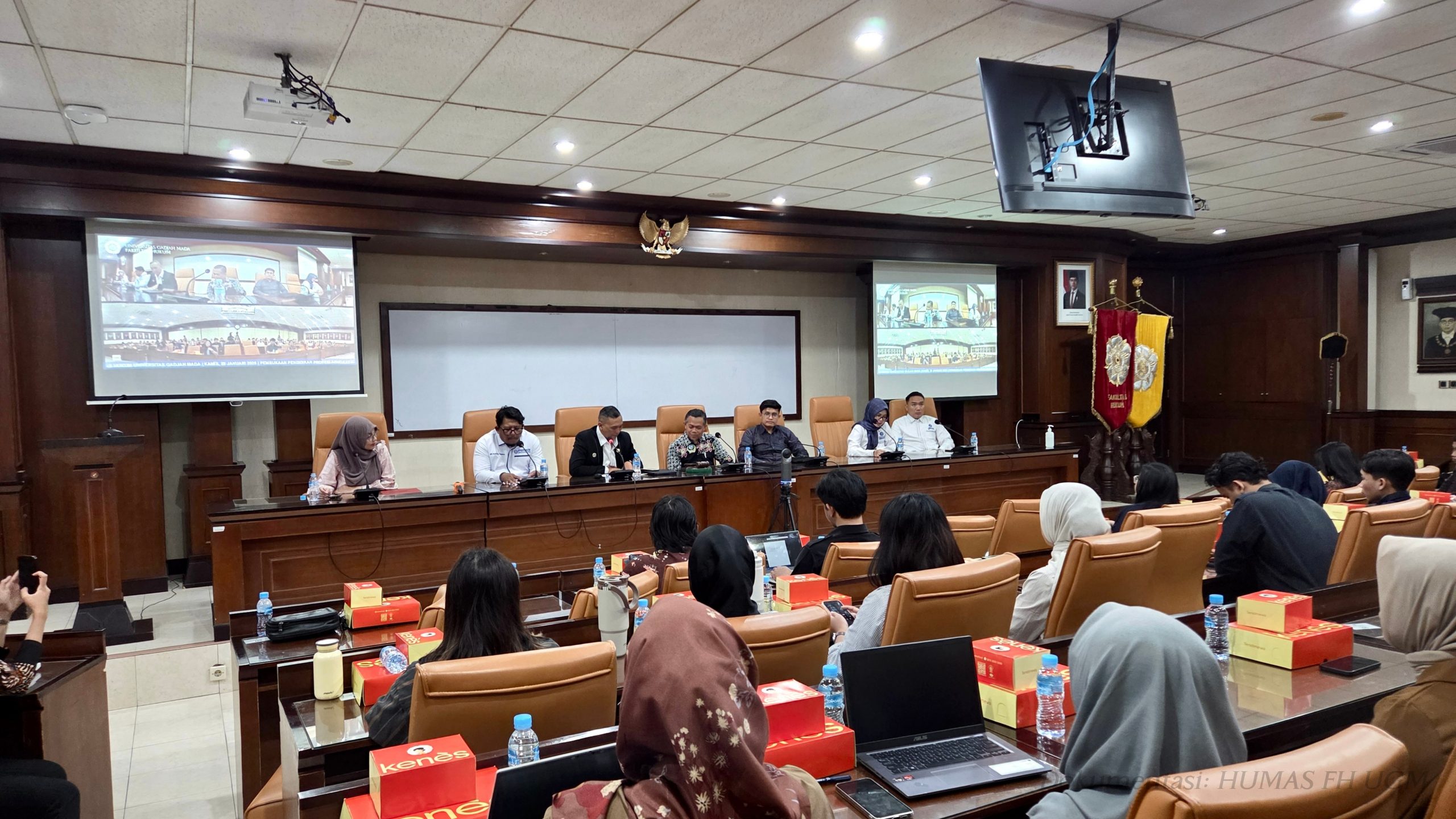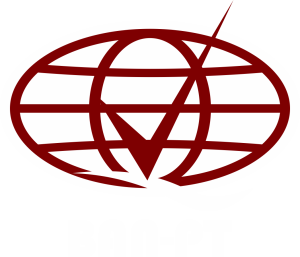Mahasiswa Pascasarjana Program Magister Hukum dan Program Sarjana Hukum Fakultas Hukum Universitas Gadjah Mada (UGM) menggelar penyuluhan hukum dengan tema “Tata Ruang Berkelanjutan dan Berkeadilan Garis Imajiner Yogyakarta: Merajut Harmoni Pelestarian Budaya dan Hak Atas Ruang untuk Warga”. Acara tersebut berlangsung pada Rabu (2/7/2025), melalui siaran langsung Pro Justicia di TVRI Yogyakarta. Kegiatan ini terselenggara berkat kerja sama antara Mahasiswa Pascasarjana Hukum UGM, Mahasiswa Sarjana Hukum UGM, Pusat Konsultasi dan Bantuan Hukum (PKBH) Fakultas Hukum UGM, dan TVRI Yogyakarta.
The broadcast aimed to provide public education regarding the Special Region of Yogyakarta (DIY), which is widely recognized for its rich philosophical, historical, ecological, and socio-cultural values. One of DIY’s main spatial symbols is the imaginary line that stretches from Mount Merapi in the north, passes through the Yogyakarta Palace (Keraton), and extends to the Southern Sea. This line represents not only Yogyakarta’s cosmology but also a profound system of values in the lives of its people. It reflects the harmonious relationship between humans, nature, and spiritual forces, as captured in the Javanese philosophy "memayu hayuning bawana," which means to nurture and preserve the harmony of the world.
The event featured three expert speakers: Aji Baskoro and Agustin Mega Prastiwi, both graduate students of the UGM Master of Laws program, and Dr. Ir. Tri Mulyani Sunarharum, S.T., a lecturer and Secretary of the Master of Urban and Regional Planning Program (MPWK) at UGM.
Aji Baskoro emphasized that the right to a safe, healthy, and sustainable living space is a constitutional right, as stated in Article 28H of the 1945 Constitution of the Republic of Indonesia. This right encompasses environmental protection, access to employment and housing, and participation in public policy. In simpler terms, it means that every citizen has the right to live in an unpolluted environment, free from human-induced ecological disasters, and with access to decent housing and livelihood. In the context of Yogyakarta, violations of this right can be seen in rampant land-use changes, illegal mining that damages rivers and harms nearby communities, and relocation policies that disregard the socio-economic sustainability of affected residents.
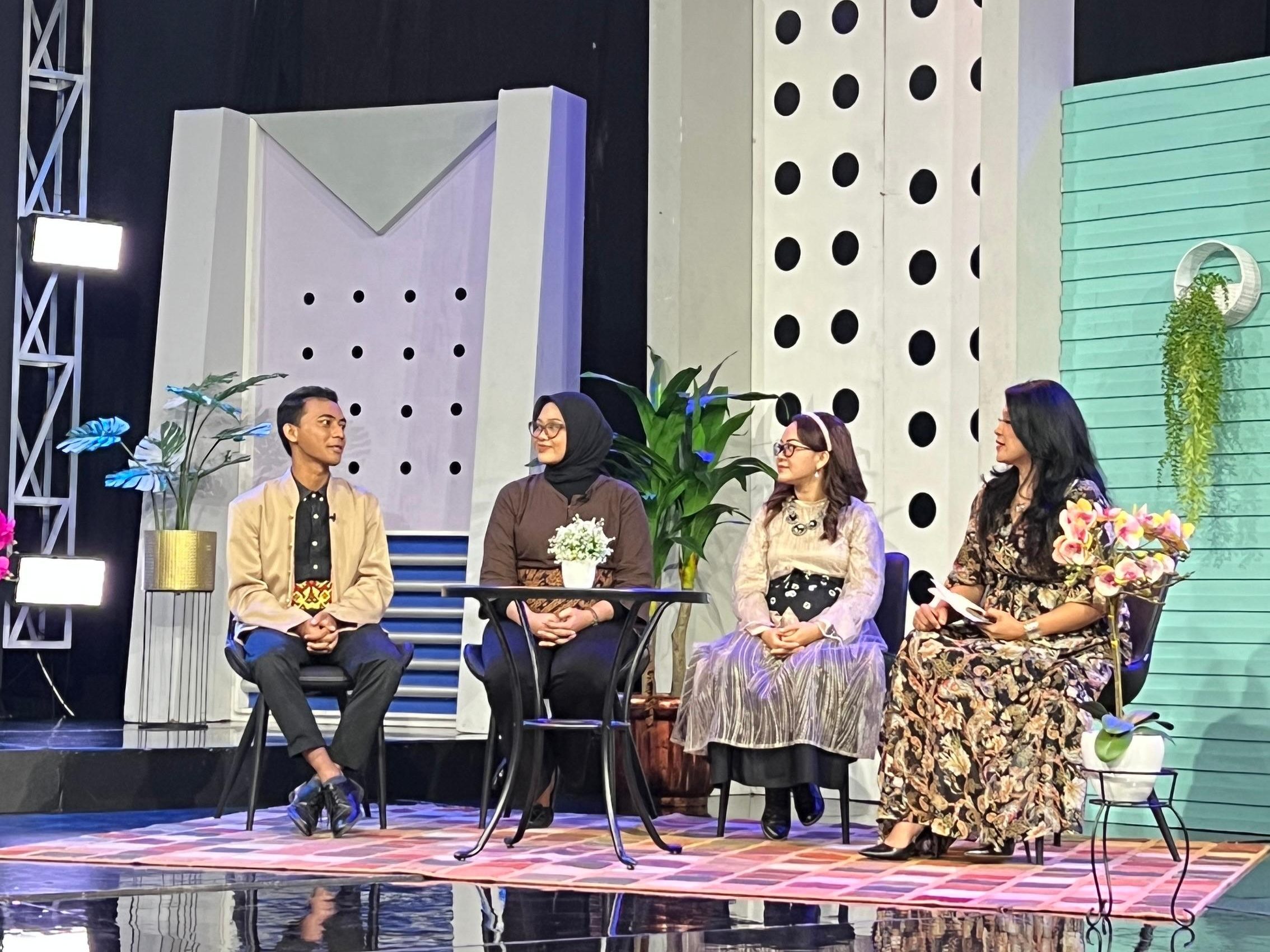
Agustin Mega Prastiwi highlighted that spatial justice is a principle that demands fair, democratic, and inclusive distribution of space, taking into account the rights of vulnerable groups. In spatial law, spatial justice is inseparable from the principle of sustainable development, which requires space management to meet present needs without compromising the rights of future generations. Injustice in spatial control or environmental degradation from illegal mining activities undermines this principle and risks perpetuating inequality and ecological crises.
Sementara itu, Dr. Ir. Tri Mulyani Sunarharum, S.T., memaparkan pentingnya Komitmen deliberatif forum dalam menyepakati tata ruang berkelanjutan dan berkeadilan di kawasan Garis Imajiner Yogyakarta merupakan wujud nyata upaya merajut harmoni antara pelestarian budaya dan pemenuhan hak atas ruang bagi seluruh warga. Melalui proses deliberatif, forum ini menghadirkan ruang dialog yang inklusif, di mana berbagai pemangku kepentingan—pemerintah, masyarakat, dan komunitas budaya—berpartisipasi secara aktif dalam merumuskan kesepakatan, baik secara informal melalui diskusi terbuka maupun secara formal melalui penetapan regulasi dan pedoman teknis. Di samping itu, harmonisasi antara kebijakan terkait tata ruang dan lingkungan lintas sektor dan lintas level kewenangan juga sangat penting dalam upaya perwujudan pembangunan perkotaan masa depan yang berkelanjutan, yang menekankan pada sinergi antara dimensi sosial yang inklusif, dimensi ekonomi yang kompetitif, dan dimensi lingkungan yang hijau dan lestari.
The event concluded with an interactive Q&A session with enthusiastic viewers of TVRI Yogyakarta. Through this broadcast, the public will better understand the importance of involving all stakeholders, including the wider community, in building harmony between cultural preservation and the right to space in the Yogyakarta Imaginary Line region.
Furthermore, this activity contributes to the achievement of the Sustainable Development Goals (SDGs), particularly SDG 11 (Sustainable Cities and Communities), by promoting inclusive, fair, and environmentally friendly spatial planning to ensure a livable environment and preserve cultural heritage for future generations. It also supports SDG 16 (Peace, Justice, and Strong Institutions) through deliberative processes that enhance public participation in decision-making and peaceful, just conflict resolution in spatial planning.
Written by: Muhammad Imam Maulana (Recipient of the Student Legal Outreach Grant)


